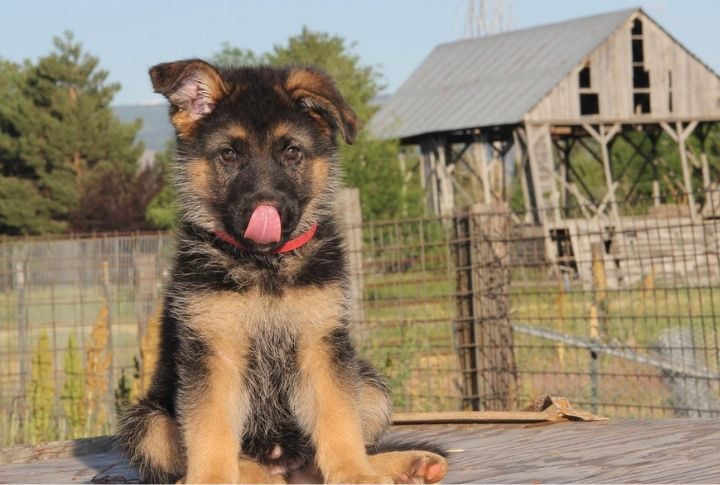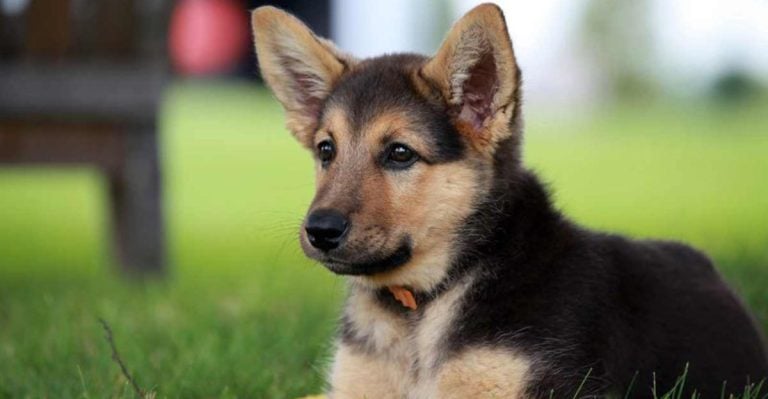15 Facts About The Miniature German Shepherd That Might Surprise You

Miniature German Shepherd is a cuter version of the classic breed, but there’s much more beneath the surface. These dogs defy the traditional labels. Understanding their unique needs is key, whether you’re considering one or already living with one. Here are 15 important facts that every owner must know.
Misconceptions About The Breed

There’s no official breed registry for a Miniature German Shepherd. Most are clever combos—think German Shepherd mixed with a Collie or a Poodle. That explains the quirks. If you’re expecting a downsized replica, think again. They’re more of a designer dog experiment than a recognized breed.
Energy Overload

This isn’t your average lapdog. A compact GSD brings the intensity of a patrol dog with the bounce of a toddler after candy. It’s fun and sprints all the time. You will be tired if you don’t match their pace with purpose and structure.
Herding Instincts

The herding impulse appears early and runs deep. You need to channel this drive through structured activities, like obstacle work or fetch drills, because, without redirection, they may attempt to herd your kids or other pets in problematic ways.
Training Challenges

Being smart doesn’t mean they listen to everything. This dog figures things out in ways you wouldn’t expect. Lock the fridge? They’ll find a way in. Skip training? They’ll train you instead. Without guidance, their intelligence turns into trouble.
Unique Appearance

Miniature GSDs have unique coat textures and colors. Some resemble their full-sized relatives, while others display surprising but charming variations. Such an individuality adds to their appeal, making them a distinctive and lovable companion.
Socialization Needs

You need to expose them to unfamiliar objects and busy streets before 16 weeks. That window closes fast. Miss it, and fear-based reactions can become ingrained habits. Socialization isn’t a bonus for this breed; it’s the backbone. A confident adult starts with weird but happy puppy moments.
Health Concerns

Genetic unpredictability makes regular checkups necessary. Depending on their parent breeds, these dogs may inherit conditions like hip dysplasia, epilepsy, or hormonal disorders. So, don’t skip checking their lineage details before adoption. Responsible breeders keep all documents handy.
Urban Compatibility

Do you live in a cramped apartment? Don’t think this small dog will adjust smoothly. They crave challenge and thrive in spaces that feel like freedom. So, you need to make sure there is ample space for them to play in the hallway or enjoy scent games. These activities satisfy their mental and physical needs.
Learning Skills

They read your gestures, voice tones, and body language like pros. When this dog stares, it’s not random. It’s data-gathering. In that case, eye contact becomes your best training tool. Use it well, and you’ll be able to exchange thoughts without a single sentence.
Coat Maintenance

Some shed very little, but others leave fur behind like confetti. So, there’s no single grooming rule for Miniature German Shepherds. Their mixed lineage complicates coat care, from brushing frequency to seasonal blowouts. You should prepare a routine that evolves with them.
Emotional Sensitivity

These dogs may pick up on tension before voices even rise. Subtle shifts in tone, posture, or energy can unexpectedly influence their behavior. While responses differ, emotional undercurrents matter. Build trust carefully because what seems calm to you might feel intense to them.
Vocal Tendencies

Barking often stems from unfamiliar sounds or atmospheres. To keep them calm, have a reliable cue like “it’s okay” and reward silence on command. This helps reduce overstimulation and encourages more thoughtful, controlled use of their voice.
Consequences Of Boredom

These pups despise repetition. Give them the same toy three days straight, and they’ll ignore or destroy it. Instead, switch things up and teach a new trick. You can also try an obstacle course or scatter-feed their meals. Monotony will only spark chaos.
Attachment Tendency

This designer breed often glues itself to one person. That attachment forms quickly and intensely. It’s flattering until they become too clingy. You need to share their responsibility by letting other family members walk and train them.
Ownership Demands

Taking on a dog with strong instincts and sharp intelligence calls for experience. Otherwise, expect misbehavior. These dogs thrive under confident leadership. If you’re a new owner, it’s best to leave early training to the pros so your pup grows up to be careful and responsible.




